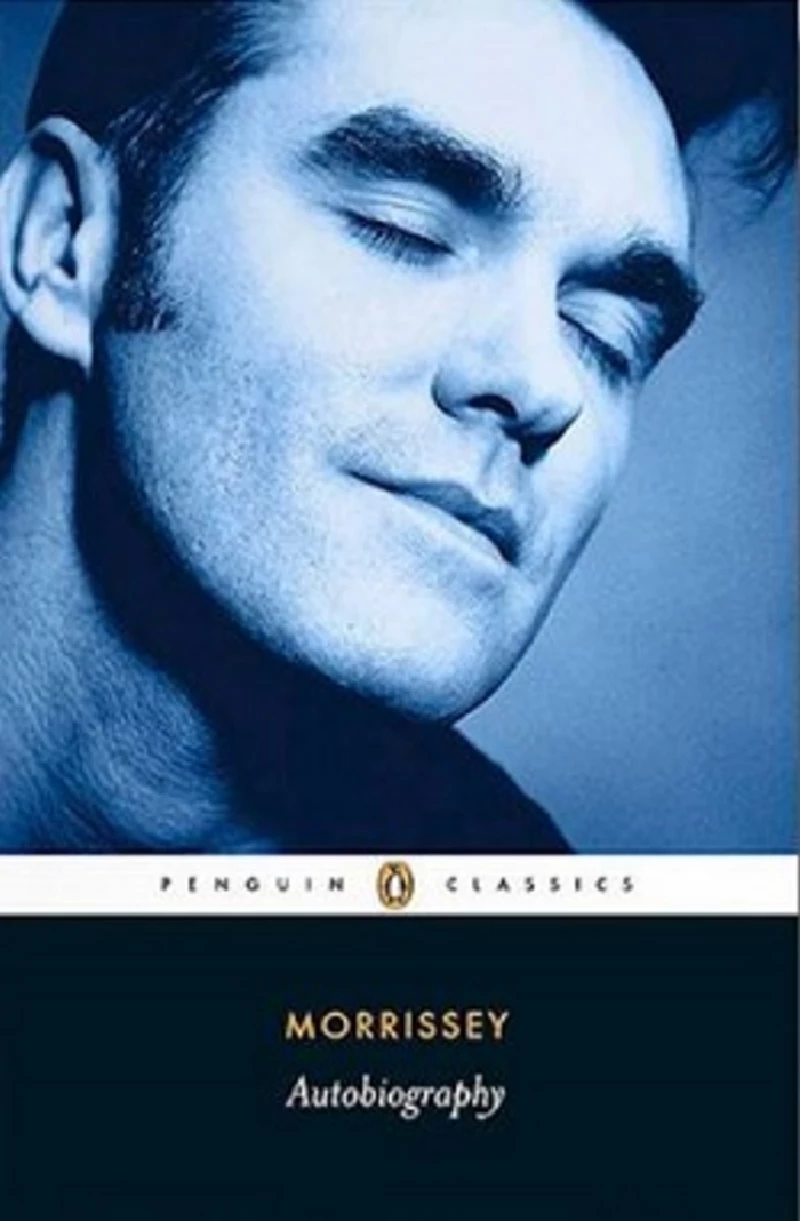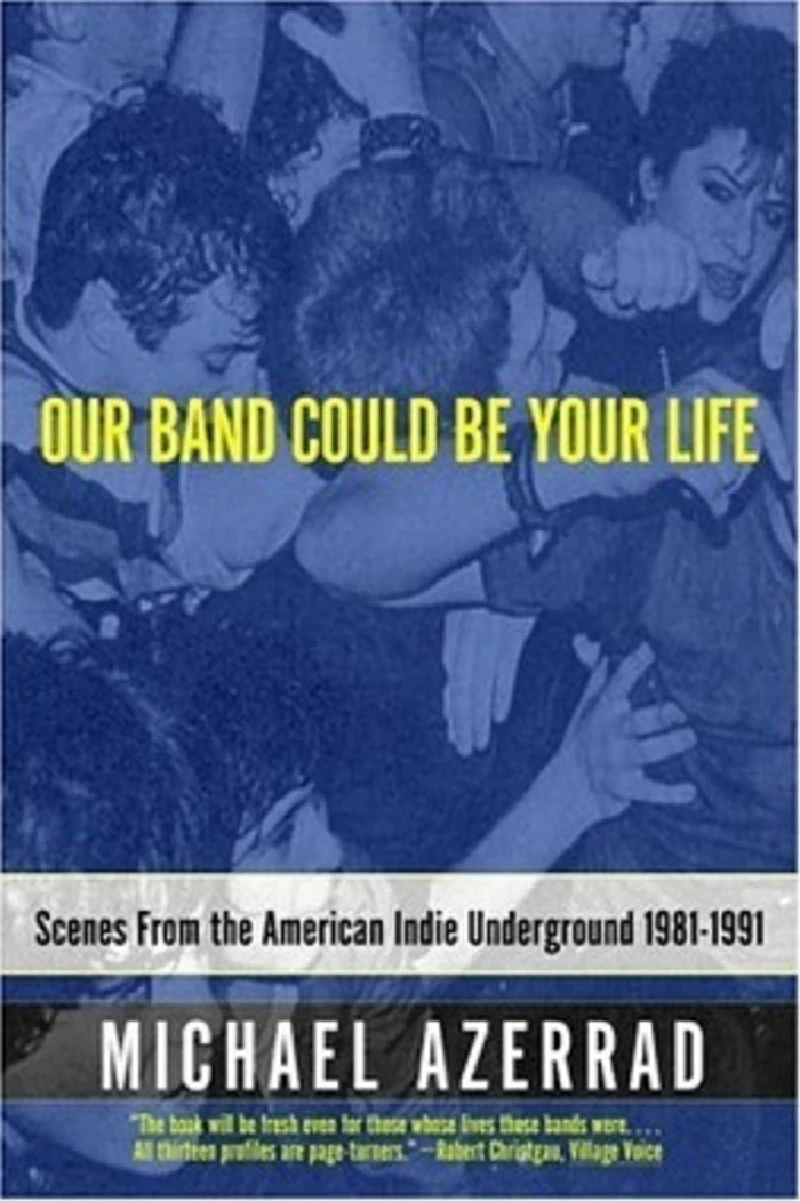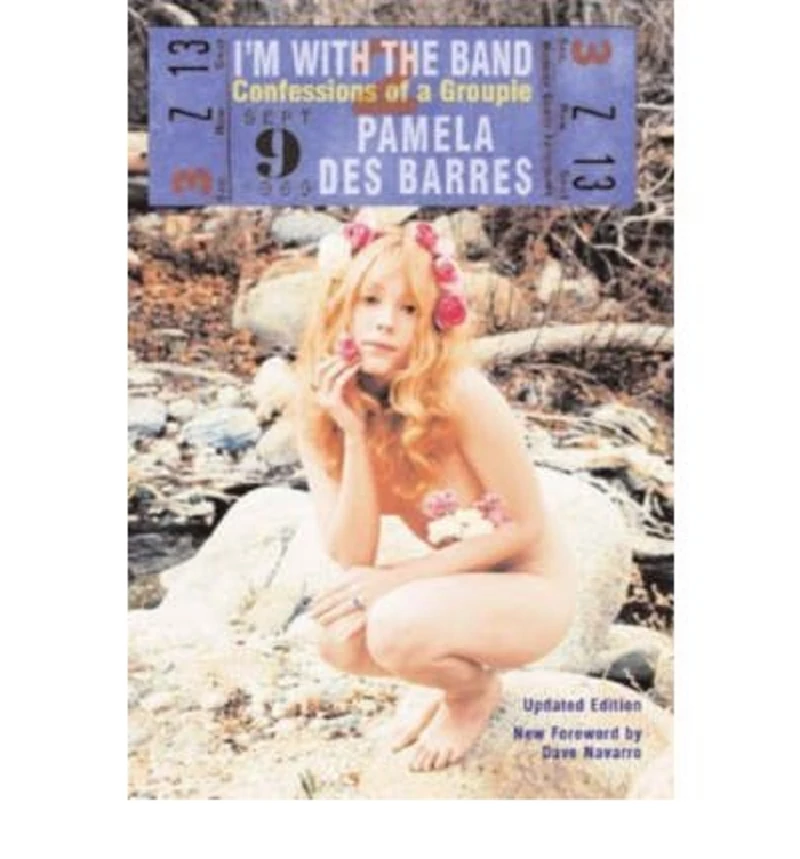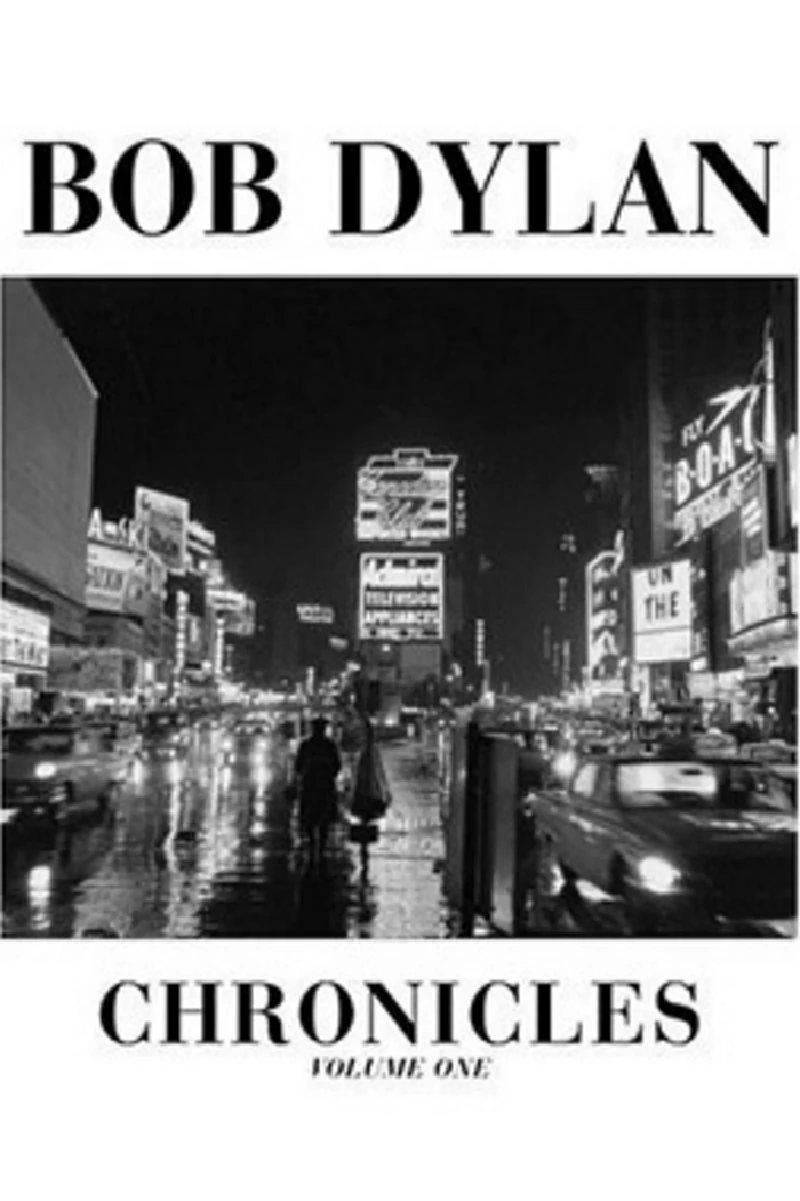Miscellaneous - Rock Biographies
by Richard Lewis
published: 24 / 2 / 2014

intro
Richard Lewis takes a look at the recent success of Morrissey’s autobiography and other entries in the genre and asks why some artists have been profiled in print more than others
Richard Lewis takes a look at the recent success of Morrissey’s autobiography and other entries in the genre and asks why some artists have been profiled in print more than others. In a Q&A session earlier this year when asked if he had considered writing a novel Morrissey answered in the affirmative stating, “In 2013 I published my ‘Autobiography’ and it has been more successful than any record I have ever released.” Variously hailed as sufficiently accomplished to “walk away with the Booker prize” (Terry Eagleton, ‘The Guardian’) and lambasted as “the most ornery, cantankerous, entitled, whingeing, self-martyred human being who ever drew breath” (AA Gill, ‘The Sunday Times’) the mixed reviews didn’t detract any from its sales. Entering the UK Bestsellers Chart at number one and setting a new first week record for music biographies, the book is likely remain the most successful venture the vocalist has been involved in since the break-up of the Smiths. In addition to the huge personal success for the singer, the book confirmed the Smiths and Morrissey’s place in a very exclusive club, putting him alongside writers of bestselling music autobiographies such as Bob Dylan and Keith Richards. While the storied likes of the Beatles, the Stones, Led Zeppelin and in more recent decades Nirvana have all been pored over endlessly, a fair percentage of contemporary artists have either suffer2ed from being over-anthologised or not given the appraisals they deserve. Intriguingly, the fame or influence on other musicians of a particular artist often doesn’t correlate with the number of biographies on them. One of the most influential artists of the past thirty years Prince has few volumes of biography dedicated to him, largely because to the Purple One’s guarded private life, but possibly due to writers not wanting to tackle such a mammoth subject. With 100 million album sales to their name and the undisputed title holders of biggest metal band of all time since 1991, Metallica somewhat surprisingly have only recently had the biographical treatment. Last year’s first volume of ‘Birth, School, Metallica, Death’ by former Kerrang scribes Paul Brannigan and Ian Winwood was warmly received with a second volume due this autumn. A band of a similar vintage if not genre meanwhile are Depeche Mode, who, despite being one of the most innovative and long term successes to have come from these isles, with a bewildering history to boot, have only one notable volume of biography dedicated to them, the impressive 2000 work by ‘Q’ writer Steve Malins. The Stone Roses by contrast, their enduring influence on British music set to one side, probably don’t justify the extensive range of books that rakes over their two album catalogue. A more extreme example of the acres of print vs. actual output would be the Libertines/Pete Doherty, who have a raft of volumes dedicated to their highly contentious ‘place’ in history, all which largely consist of ‘candid’ photos and some accompanying captions. Highly valuable in terms of myth-making, biographies can create an image of a band or artist that almost threatens to overwhelm the music, as Jim Morrison bio ‘No One Here Gets Out Alive’ (1980) by journalist Jerry Hopkins and Doors’ associate Danny Sugarman almost seemed to. Inflating the legend of the Lizard King to a borderline ludicrous extent, to band keyboardist Ray Manzarek’s chagrin the book served as the rough screenplay for Oliver Stone’s 1990 biopic, which despite its faults successfully introduced the Doors to a new generation. Being fully compliant in the My Drug Hell/Excess All Areas/VH1 Behind the Music strain of biographies can however reap big rewards. Mötley Crüe, far from being the greatest practitioners of rock music (or even hair metal for that matter) saw their profile done no end of good with the wonderfully scurrilous (and fully band approved) bio ‘The Dirt’ (2000). Cranking up the drugs and debauchery side of the group while paying scant attention to the music (probably a wise choice), rumours persist that the volume will be made into a film. Setting a group in its era, when the artist becomes a focal point for the societal changes going on around it, as opposed to the music itself appeared to be the principal aim of Philip Norman, formerly a ‘Sunday Times’ columnist and presently with ‘The Mail on Sunday’. Writer of the best-selling biography of the Beatles (‘Shout!’ 1981) and the most thorough account of their sixties rivals the Rolling Stones (‘The Stones’, 1984), while both were brilliantly written with strong narratives and highly evocative of the period covered, bafflingly Norman paid scant attention to either band’s music, with entire albums sometimes being skipped over in a single paragraph. Beyond artist profiles are books that attempt to condense an entire movement (or several) into one volume. Simon Reynolds, author of the colossal ‘Rip It Up and Start Again: Post Punk 1978-1984’ undertook the herculean task of creating a digest view of mainstream and underground scenes on both sides of the Atlantic, awkwardly cramming goth, new wave, new romantic and the birth of hip-hop into one volume. At the other end of the scale from Reynolds’ theorising and Marxist critiques, the late self-styled cultural commentator Albert Goldman carved himself a niche as author of scabrous celebrity memoirs, specialising in tawdry tales never too low to print. Goldman’s two infamous music biographies, the latter day Penny Dreadfuls ‘Elvis’ (1981) and the hilariously awful ‘The Lives of John Lennon’ (1988) (which claimed the former Beatle had repeatedly plagiarised ‘Three Blind Mice’ for his own songs) were determined to undermine the legacy of both musicians and rigidly adhered to the tabloid maxim of ‘Do speak ill of the dead, they can’t sue.’ With all that in mind then, here is a selection of some of the very best music biographies. (NB. the classic ‘Diary of a Rock n’ Roll Star’ by Mott the Hoople leader Ian Hunter is omitted, due to the great hindrance of being out of print and near-impossible to source second hand.) 1. ‘Our Band Could Be Your Life: Scenes from the American Indie Underground: 1981-1991’ - Michael Azerrad (2001) Greeted as a classic upon publication, Michael Azerrad’s meticulous tome profiles thirteen groundbreaking US indie bands from the 1980s underground. Taking its title from a lyric in ‘History Lesson – Part II’ by Californian punk trio Minutemen whose ‘jamming econo’ ethos influenced a generation of fellow US bands, Azerrad brilliantly pulls together the narrative strands, as the various groups’ lives intersect as part of the far-flung yet simultaneously close-knit US underground scene. An era defined by college radio, indie labels, homemade fanzines and almost complete indifference by the mainstream music press, profiles on Dinosaur Jr, Husker Du and the Replacements rub shoulders with profiles on indie big wheels such as Big Black founder/future production legend Steve Albini and Ian MacKaye, whose bands Minor Threat and Fugazi were the primary catalysts for the entire scene. Revealing for readers whose record collections might already contain the bands featured, the book also played a huge part in spreading the word about many of the groups celebrated in its pages for future generations 2. ‘I’m with the Band: Confessions of a Groupie’ – Pamela Des Barres (1987) Merely describing the former Miss Pamela of the Frank Zappa christened GTOs (Girls Together Outrageously) as the most famous rock groupie of all time does a huge disservice to the former Miss Miller’s supreme talent as a writer. Paramour to Jimmy Page, Mick Jagger, Keith Moon, John Bonham, Noel Redding, Gram Parsons, Waylon Jennings and Chris Hillman (among others) and live-in babysitter to Frank Zappa’s children Moon Unit and Dweezil, Des Barres had the musical knowledge and the biographical skills to boot. Afforded the kind of inner circle access Rolling Stone scribes would have killed for ‘I’m With the Band’ captures the let-it-all-hang-out air of LA’s late 1960s/early 1970s music scene and all its attendant hangers on. Now rightly considered a classic, rumours consistently swirled in the last decade that HBO were developing a mini-series based on the book with Zooey Deschanel as Miss Pamela, a project which has yet to come to fruition. 3. ‘Head-On’ – Julian Cope (1994) Subtitled ‘Memories of the Liverpool Punk Scene and the Story of the Teardrop Explodes 1976 – 1983’, Julian Cope’s stunning first volume of biography vividly recreates the Liverpool music scene of late 1970s and the characters that inhabited it. Possessed either of a photographic memory or the diary skills of Samuel Pepys, Cope accidentally found himself becoming one of the leading lights of the nascent scene centred around city centre club Eric’s almost immediately upon his arrival in the city. A member of imaginary band the Crucial Three alongside Echo & the Bunnymen frontman Ian McCulloch and Wah! mainman Pete Wylie, Cope describes the meteoric rise and bizarre, fractured downfall of his band the Teardrop Explodes over an explosive four year span. With future members of Dead or Alive, the KLF, Frankie Goes to Hollywood and Siouxsie and the Banshees all present, (largely as members of ‘Supergroup in Reverse’ Big in Japan) the volume reads as a compelling page turner. ‘Repossessed’, follow up to ‘Head-On’, which covers 1983 to 1989 is similarly excellent, covering Cope’s travails with his disruptive neighbours and a recalcitrant record company. Beyond that, the singer was garlanded with spectacular reviews for his work on German Kosmische music ‘Krautrocksampler’ (1995) which is frustratingly out of print at present. 4. ‘The Last Party: Britpop, Blair and the Demise of English Rock’ – John Harris (2003) As ‘NME’ Staff Writer from 1992 to 1995 then editor of the now defunct ‘Select’, John Harris witnessed Britpop’s swift ascent and rapid fall at close quarters. Covering a time when a highly unlikely collection of British indie musicians became for a short period genuine popstars, Harris hones in on an almost Dickensian set of characters As the ultra ambitious Damon Albarn, scheming Justine Frischmann, self-destructive Brett Anderson, art school misfit Jarvis Cocker and unreconstructed wannabe rock star Noel Gallagher scale the charts, the independent music sector reels from the new-found attention after years in the shadows as the Blur Vs. Oasis chart battle crash lands on the BBC Six O’ Clock News. Able to report on the musicians’ activities firsthand Harris’s account reads as dispatches from the frontline, as gradually a rank brew of mutual loathing, paranoia, hard drugs and wildly uneven success put paid to many of those associated with the movement. 5. ‘Bad Vibes: Britpop and My Part in Its Downfall’ – Luke Haines (2009) While the majority of musicians’ memoirs and biographies understandably detail the lives of the massively successful, books by the lesser-known provide a highly valuable alternative history. Bilious, misanthropic and frequently hilarious, ‘Bad Vibes’ sees erstwhile leader of the Auteurs and Black Box Recorder Luke Haines recalling life on the outside looking in. A wonderfully scabrous memoir from the other side of the Britpop dream and a brilliant companion piece to ‘The Last Party’, the pitch-black wit of Haines’ lyrics is much in evidence throughout. Despite initial success the singer seems feted to spend his entire musical life on the sidelines as single constantly chart on the wrong side of the Top 40, an ebbing tide of music press interest and zero response Stateside sees contemporaries the Verve, Blur, Elastica, Suede and Pulp all steam past him. Stuffed full of anecdotes, the juiciest tale concerns Haines’ reaction to losing out on the 1994 Mercury Prize by a single point to Suede, drunkenly demanding the award from the group, then punching a window in fury and concluding the night spending six hours in A&E. Throwing himself off a wall in Spain to avoid completing a European tour which resulted in two broken ankles and a long sabbatical, urging the tour manager to deliberately crash and write off the tour bus, and generally failing to be nice about anyone who sells more records than him, Haines’ memoirs were arguably the biggest commercial success of his career to date. The positive reaction to the book lead to similarly acclaimed follow-up ‘Post Everything: Outsider Rock and Roll’ (2011). 6. ‘Hammer of the Gods: Led Zeppelin Unauthorised’ - Stephen Davis (1985) While it veers very close at times to ‘The Shocking History of Led Zeppelin: As Told by The National Enquirer’, Stephen Davis’ account of the 1970s rock behemoths is an affectionate portrait enthusiastically told. With all of the lurid tales of excess reliably present, Davis ensures the reader never loses sight of the huge impact the hirsute British rockers had on the States in particular. Although some of the more lurid accounts contained within its pages maybe exaggerated or slightly taken out of context, all of the sleaze, scandals and sales are grist to Davis’ mill, turning the book a succession of ripping yarns. Zeppelin vocalist Robert Plant himself said of the volume, “I want to believe (it) because it’s done us huge favours in terms of aura.” 7. ‘Revolution in the Head: The Beatles’ Records and the Sixties’– Ian MacDonald (1994) The most anthologised, analysed, critically appraised group of all time, venerated music writer Ian MacDonald succeeded in doing what seemed impossible by the mid-nineties and produced the definitive account on the Beatles. Despite seemingly everything that could have been written about the band having already appeared in print, the former ‘NME’ deputy editor’s 1994 work remains the definitive work on the foursome, rerouting the band’s story to what fundamentally matters, their music. Following the simple format of including an essay on every Beatles’ song ever officially released, by going back to the source material MacDonald not only made the material fresh again but gave generations of listeners the chance to hear the songs from a new perspective. A massive success, the concept behind the book was so effective, ‘The Smiths: Songs that Saved Your Life’ by Simon Goddard (2002) lifted the format to cover the works of Mancunian quartet. 8.‘The Dark Stuff’ – Nick Kent The oft-repeated argument that the Golden Age of ‘NME’ was in the mid to late 1970s springs from the presence of a handful of considerably talented writers at the weekly, namely Tony Parsons, Charles Shaar Murray, Julie Burchill and Nick Kent. Older than his contemporaries Kent almost single handedly created the concept of ‘immersive writing’ where the journalist becomes part of the musicians’ world when creating the article to seamlessly blend in. A collection of essays, reportage and later material stitched together, ‘The Dark Stuff’ celebrates music writing as anthropology, putting the reader in the centre of the action. Spending countless hours alongside the great and the good of the era, with David Attenborough-like fervour Captain Beefheart, Iggy Pop, Keith Richards and David Bowie are all observed at close quarters in their natural habitats, onstage, in the studio and between gigs. 9. ‘Hotel California’ – Barney Hoskyns 2005 Subtitled ‘Singer-Songwriters and Cocaine Cowboys in the LA Canyons 1967-76’, former NME writer and American music authority Barney Hoskyns tells the story of a closely linked cabal of California arrivistes who went on to global fame. Commencing with the Byrds and segueing into the story of Crosby, Stills, Nash and Young, the aforementioned along with Linda Ronstadt, Jackson Browne, Joni Mitchell and James Taylor are all profiled, the lives and careers constantly criss-crossing as the 70s unfolds. As much a star in the book as the musicians, the swaggeringly ambitious David Geffen was able to turn his talent for A&R into multi-platinum, multi-million dollar success as the Eagles, the band he personally oversaw and whose colossal sales resulted in severe friction with other Californian denizens, became the biggest band on the planet. Running concurrently with the endless string of successful new artists appearing each year, the volume highlights the seventies as the decade in which the music industry finally lost its innocence as the accounts department and a focus on the bottom line began to take over the running of record companies. 10. Chronicles: Volume One’ – Bob Dylan (2004) Vying with Morrissey’s for the title of best autobiography (Keith Richard’s otherwise superb ‘Life’ is slightly hampered by its score-settling) Bob Dylan to no-one’s great surprise delivered a classic with the first instalment of his memoirs. A figure who has always been fully aware of the importance of back-story (his oft-repeated hitched-train ride to New York in 1961 was a fabrication, he merely travelled by car) Dylan concentrates on the lesser known chapters in his life and career, skipping over the ‘Spokesman for a Generation’ 1963-1966 era almost entirely. Revealing the domesticated side of his life by the late 1960s, his departure from the music scene was largely precipitated by his continuing reluctance to be at the head of ‘The Revolution’ as the hippy drop-outs who constantly knocked on his front door asked him to be. Featured on the New York Times Bestsellers List for almost six months, ‘Chronicles’ was an enormous critical and commercial success. Over ten years since it first appeared, Volumes Two and Three will hopefully appear before the end of the decade, as Dylan confirmed he was working on the second book in 2012.
Picture Gallery:-



Visitor Comments:- |
| 683 Posted By: lisa torem, cicago on 07 Mar 2014 |
|
Hi Richard,
Thanks for the great article.
I would like to add 'Be My Baby' (Ronnie Spector) to the list.
Lisa
|
most viewed articles
current edition
Carl Ewens - David Bowie 1964 to 1982 On Track: Every Album, Every SongArmory Show - Interview with Richard Jobson
Colin Blunstone - Thalia Hall, Chicago, 16/7/2025
Visor Fest - Valencia, Spain, 26/9/2025...27/9/2025
John McKay - Interview
Bathers - Photoscapes 1
Loft - Interview
Billie Eilish - O2 Arena, London, 10/7/2025
Robert Forster - Interview
Sir Tim Rice - Interview
previous editions
Heavenly - P.U.N.K. Girl EPManic Street Preachers - (Gig of a Lifetime) Millennium Stadium, Cardiff, December 1999
Beautiful South - Ten Songs That Made Me Love...
Oasis - Oasis, Earl's Court, London, 1995
Pixies - Ten Songs That Made Me Love...
Prolapse - Interview
Boomtown Rats - Ten Songs That Made Me Love....
Trudie Myerscough-Harris - Interview
Coldplay - Wembley Arena. London, 16/8/2022
Peter Perrett - In Dreams Begin Responsibilities Interview Part One
most viewed reviews
current edition
Amy Macdonald - Is This What You've Been Waiting For?Sick Man of Europe - The Sick Man of Europe
Phew, Erika Kobayashi,, Dieter Moebius - Radium Girls
Lucy Spraggan - Other Sides of the Moon
Davey Woodward - Mumbo in the Jumbo
Alice Cooper - The Revenge of Alice Cooper
Bush - I Beat Loneliness
Suzanne Vega - Flying With Angels
Blueboy - 2
Cynthia Erivo - I Forgive You
Pennyblackmusic Regular Contributors
Adrian Janes
Amanda J. Window
Andrew Twambley
Anthony Dhanendran
Benjamin Howarth
Cila Warncke
Daniel Cressey
Darren Aston
Dastardly
Dave Goodwin
Denzil Watson
Dominic B. Simpson
Eoghan Lyng
Fiona Hutchings
Harry Sherriff
Helen Tipping
Jamie Rowland
John Clarkson
Julie Cruickshank
Kimberly Bright
Lisa Torem
Maarten Schiethart